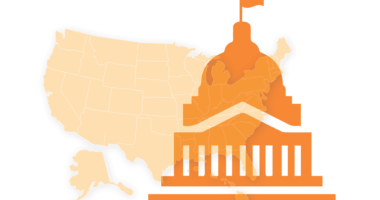Education, Civil Rights, & Disabilities Rights Advocates Call on U.S. Department of Education to Ensure Transparency & Equity in Use of COVID-19 Relief Funds
The Honorable Betsy DeVos
Secretary of Education
U.S. Department of Education
400 Maryland Ave, SW
Washington, DC 20202
Dear Secretary DeVos:
We, the undersigned groups, are unified in our missions to promote educational equity across the country and help the most vulnerable students overcome opportunity and achievement gaps. As our country faces unprecedented educational challenges brought about by the COVID-19 pandemic, it is more important than ever that we work to aid all students, particularly those most in need. As the Department works quickly to allocate billions of dollars in emergency funds to help states and districts respond to this pandemic, we ask that the Department promote and provide transparency into how the funding is being spent at the State educational agency (SEA), local educational agency (LEA), and school levels in order to ensure that all students are being served and supported at this critical time.
To accomplish that goal, we request that the Department ask a few, essential questions of SEAs as they apply for emergency funding appropriated under the Coronavirus Aid, Relief, and Economic Security (CARES) Act (H.R.748). These questions will help ensure transparency and equity in the distribution of emergency COVID-19 funding for K-12 schools. Specifically, the Department should include the following provisions in the application it develops for SEAs to apply for funds:
- A description of how the SEA plans to use funds for COVID-19 response activities, particularly how funds will be used to meet the unique academic and social and emotional needs of students from low-income backgrounds, students with disabilities, English learners, racial and ethnic minorities, foster care youth, students experiencing homelessness, and students engaged in the juvenile justice system. We understand that a SEA may not know all the needs of students and schools in the State at this point, but we feel a general description of the State’s plan to deal with COVID-19 — during closure and upon students’ return — should be included in any application.
- An assurance that the SEA will require all LEAs that receive funds to distribute funds equitably and to make publicly available how they and schools within their boundaries are spending their funding allocations, particularly to meet the unique needs of low-income students, students with disabilities, English learners, racial and ethnic minorities, foster care youth, students experiencing homelessness, and students engaged in the juvenile justice system.
- Information on how the SEA will ensure all students have equitable access to learning opportunities during and after school closures, including access to technology and high-quality instructional materials, as well as compensatory services for students with disabilities; a description of how the SEA will ensure that it will meet the technology needs of all students, particularly low-income students, students with disabilities, students of color, and English learners; and information on steps the LEA will take to equitably address learning loss and needed compensatory services for students with disabilities due to closures.
After a year, we also ask that the Department require a State, its LEAs, and schools to retrospectively publicly report how funds were spent on COVID-19 related activities once school resumes and student needs are fully realized, and describe how these funds impacted education.
Additionally, the CARES Act allocated $7 million to the Department’s Inspector General to “prevent, prepare for, and respond to COVID-19, including for the oversight and audits of programs, grants and projects” funded by the bill. This provision is also critical in providing information on how funds are being spent in K-12 schools in response to this pandemic. We hope that the Department’s Inspector General will review how and whether funds are being spent in accordance with all applicable laws and regulations and hope to be able to work with the Inspector General, where appropriate, to provide input.
We also know the CARES Act requires you to submit a report in 30 days about additional waivers that may be needed under various laws affecting K-12 education. While we support state leaders as they make thoughtful decisions about how best to consider their local context and make the right decisions for their students, it is paramount that education equity is at the forefront of any administrative or legislative action. As the COVID-19 pandemic evolves on a daily basis, it would be premature to issue blanket national waivers from core components of the law. Thus, case-by-case consideration of each state’s needs is, at this time, most appropriate, as the Department acknowledges that the impact of COVID-19 will affect each state differently. We must ensure that we work collectively to protect students’ civil rights during this time.
Finally, we know that under the American Recovery and Reinvestment Act (ARRA), an online system was developed to collect and make public information on how states, districts, schools and institutions of higher education were using ARRA funds. We ask that the Department undertake a similar initiative with the supplemental funds under the CARES Act to collect and make public information on how these stimulus funds are being spent and their impact on the education of students. This public, online repository will help highlight efforts to promote equity and innovation, allowing outside organizations to more effectively assist states, districts, and schools with their COVID-19 response efforts. Keeping a public record of stimulus expenditures will help all stakeholders share best practices and learn from each other so that we can support learning while combatting the adverse effects of this pandemic.
Thank you for your consideration and we look forward to working with the Department to ensure that all students receive the support they need in response to this national emergency.
Sincerely,


